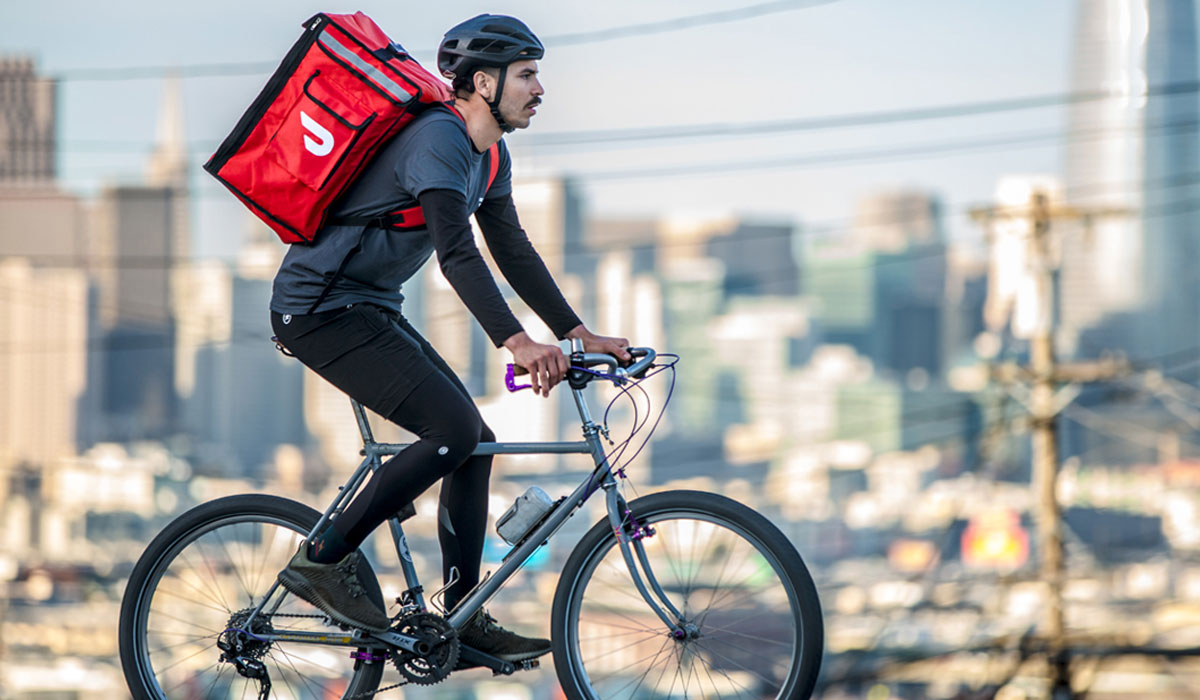DoorDash filed its initial public offering Friday, and will soon join third-party powerhouses Grubhub and Uber on the New York Stock Exchange.
The company will enter the public arena with more than 18 million customers, 390,000 merchants, and 1 million delivery drivers. It also reported that more than five million use its DashPass service, which offers free delivery. According to Second Measure, DoorDash owned 49 percent of the third-party delivery market in September. Uber Eats was second with 22 percent, followed by Grubhub with 20 percent and Postmates with 8 percent.
DoorDash has raised $2.5 billion. The company’s most recent valuation came in at $16 billion.
In a letter, CEO Tony Xu laid out a vision to “build products that transform the way local merchants do business and enrich the communities in which they operate.”
“We believe that by starting with food, we have created the most sophisticated and reliable logistics platform for local businesses,” Xu said in the opening letter. “And, while food itself is a category that has a long runway for growth, we believe the network we have built ideally positions us to fulfill our vision of empowering all local businesses to compete in the convenience economy.”
In the nine months ending September 30, DoorDash earned $1.9 billion in revenue compared to $587 million in the year-ago period. It also swung a net loss of $149 million in that nine-month period, after posting a net loss of $534 million in the same timeframe last year.
While DoorDash slimmed its losses this year, profitability remains an ongoing concern. The company generated a net income of $23 million in the three months ending June 30, but the aggregator has operated at a loss in each year since it was founded in 2013. Through September 30, DoorDash had accumulated a deficit of $1.3 billion.
“We expect our costs will increase over time and our losses to continue as we expect to invest significant additional funds towards growing our business and operating as a public company,” the filing said. “We have expended and expect to continue to expend substantial financial and other resources on developing our platform, including expanding our platform offerings, developing or acquiring new platform features and services, expanding into new markets and geographies, and increasing our sales and marketing efforts.”
Because of the tailwinds from the COVID pandemic, DoorDash also cautioned that it may not continue to grow at its current pace. It also cited increased competition from other third-party delivery companies as well as restaurants that manage their own fleet, such as Domino’s and Papa John’s.
Additionally, DoorDash said that as it expands beyond food delivery, it will face competition from the likes of Amazon and Google.
“Within our industry, the cost to switch between offerings is low,” the filing said. “Consumers have a propensity to shift to the lowest-cost provider and could use more than one local logistics platform, independent contractors who provide delivery services could use multiple platforms concurrently as they attempt to maximize earnings, and merchants could prefer to use the local logistics platform that offers the lowest commission rates and adopt more than one platform to maximize their volume of orders.”
DoorDash also noted that it may continue to be the target of legal challenges going forward because of its pay model for drivers. For example, Washington, D.C. filed a lawsuit against the company in November 2019, alleging that tips were going to the company and not the drivers. DoorDash formed a new pay model that has led to an increase in compensation for drivers, but the company acknowledged that it may also lead to less consistency in earnings.
At the ballot box, DoorDash and other companies in the gig economy avoided a significant obstacle when California residents voted to allow gig employees to remain classified as contractors as opposed to employees.
“A reclassification of Dashers or delivery service providers using a local logistics platform as employees could require us to revise our pricing methodologies and pay model to account for such a change to Dasher classification, and to make other substantive internal adjustments to account for any transition of a Dasher to an employment position, which would have an adverse impact on our business, financial condition, and results of operations,” the filing said.
DoorDash will have three classes of stock: Class A will have one vote per share, Class B will have 20 votes per share and Class C will not have voting power.












